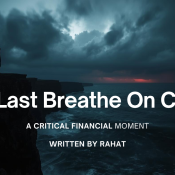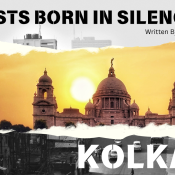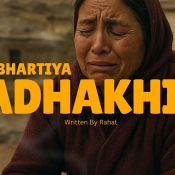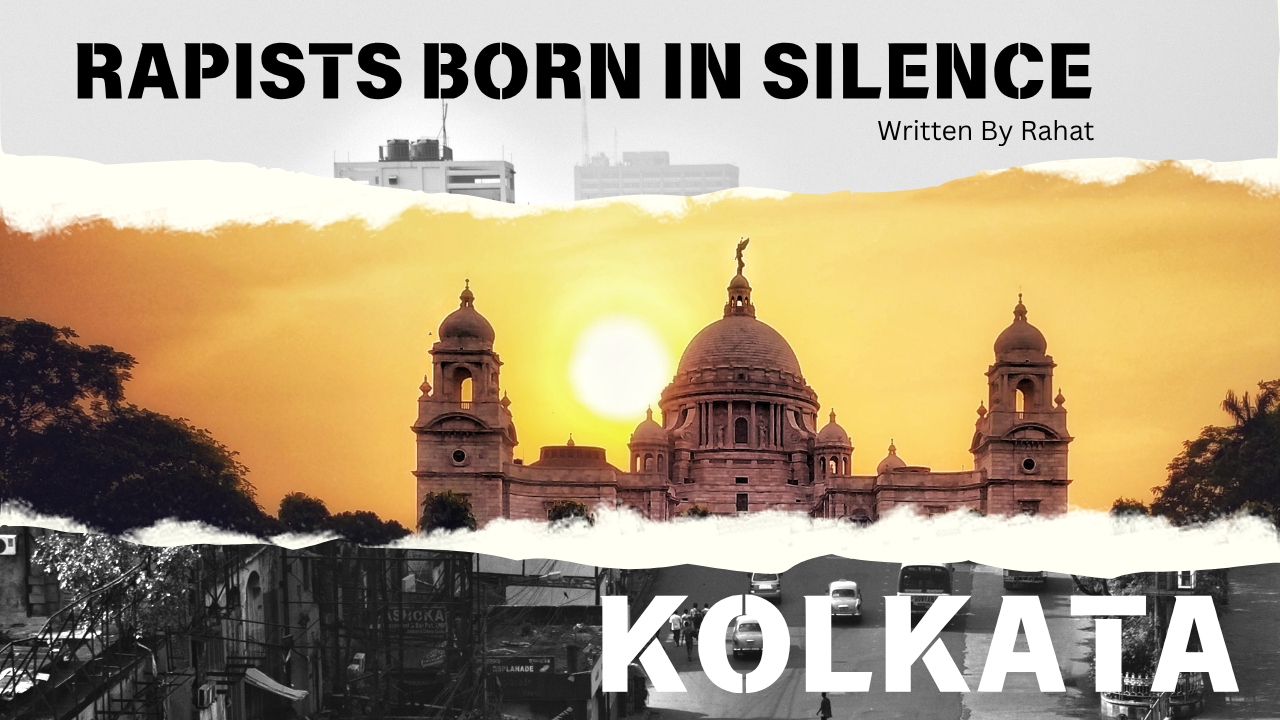
Rapists Are Born in Silence: Another Daughter of Kolkata Screams for Justice.
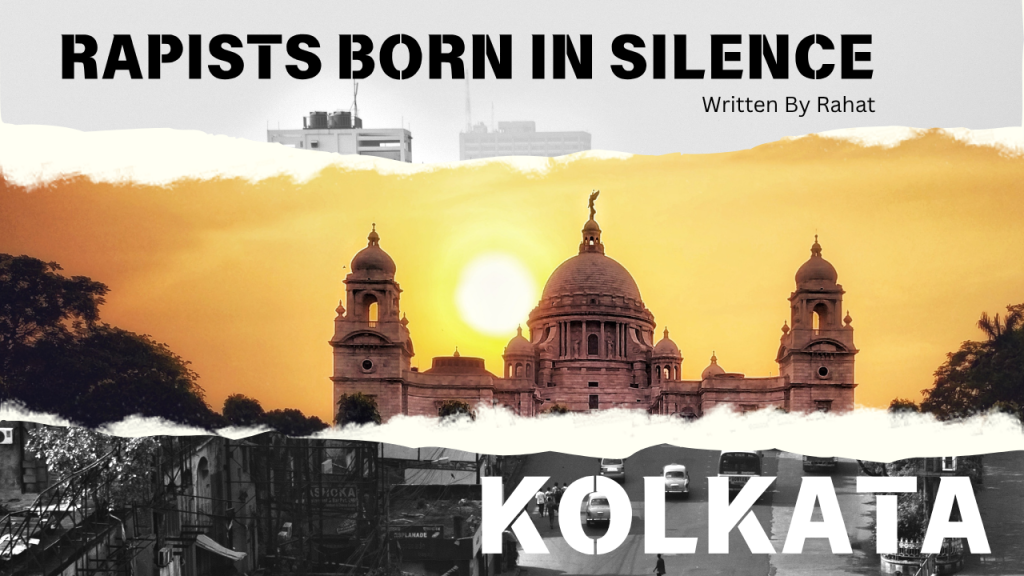
By Rahat Ali
Quote: “A country where a healer’s body is shattered before she could save lives — must ask, who truly needs healing now?”
The streets of Kolkata woke to another morning of chaos disguised as routine. Rickshaws rattled past, vendors shouted over each other, and the trams clanged as if nothing had happened the night before. But inside a small hostel room, a girl who had dreamed of healing the world now lay broken, not physically alone but abandoned by the society she was meant to serve. She had been one among thousands of medical students in this city, young, bright, and filled with dreams that stretched beyond classrooms and hospitals. Her ambition was not to be remembered in headlines for tragedy, but as someone who would save lives, as someone who would bring comfort to suffering souls.Yet, the nation had once again failed to protect its own. She had trusted the streets, the people around her, the very city that claimed to nurture its future. She had smiled at strangers, walked late at night after hospital rounds, and returned to her room with the same courage that doctors are taught to carry when confronting death. And yet, the same city that applauded her dedication now ignored her silence, as if trauma could be drowned in the clatter of everyday life.Her voice, when it came out, was raw but eloquent, an unfiltered testament to betrayal. She wrote, imagining that someone, somewhere would listen: “I am a daughter of Bharat. I studied to save lives. I wore a white coat thinking it gave me purpose, not realizing it would make me prey. I trusted my own city, my own country, and I have been betrayed. My pain is yours too if you are silent, because silence is the breeding ground for monsters. I do not ask for pity. I ask for justice, for change, for the nation to wake before another life is lost.” Her words, though never meant for viral circulation, thundered across social media feeds, igniting outrage, sorrow, and shame.Her parents, who had raised her with pride and unwavering belief in education, were shattered. They remembered her as a child who would carry bandages for stray dogs, who would insist on learning first aid at age ten, who would scold them gently for wasting water or food. And now, that same child, that healer, lay traumatized, while the bureaucracy shuffled papers and the police filed reports that read like numbers rather than cries for help. “We taught her to be strong, to fight for justice, to heal others,” her mother whispered, tears cutting lines through the makeup she no longer cared for. “But who will heal her now? Who will save our daughter?” Her father could not answer; he only stared at the wall as if the ceiling itself had betrayed him.Around her, the hospital smelled of antiseptic and faint fear, corridors echoing with the footsteps of those who had seen too many tragedies but too few resolutions. Friends gathered, trembling with anger and helplessness, demanding action, demanding that the story not be lost in the scroll of a distracted nation. They held her hand, spoke her name like a prayer, and vowed to keep her dream alive, even if she could not. But their words, no matter how heartfelt, could not erase the injustice that had been committed. The medical college, the hostel authorities, the very city that was her home—had failed her, silently complicit in the indifference that allowed predators to thrive.The media covered her story, but not with the dignity she deserved. Headlines were sensational, often stripping her identity down to a statistic, a number in the long list of horror tales that Bharat had grown accustomed to ignoring. Politicians expressed sorrow, law enforcement promised investigation, and social activists demanded stricter laws. Yet beneath these hollow assurances, the reality remained unchanged: streets were unsafe, institutions were inadequate, and the collective conscience of the nation was numbed by repetition. Every voice that spoke in outrage risked being drowned in the echo chamber of forgetfulness.She had dreamed of saving lives, performing surgeries that would be remembered for decades, comforting families in their darkest hours. Now, she fought daily to salvage fragments of herself, grappling not only with the trauma inflicted upon her but with the bitter understanding that society itself was partly responsible. Her white coat, once a symbol of hope and dedication, now lay folded in a corner of her room, heavy with memory and silence. It had seen her brilliance, her sleepless nights, her compassion. It had now become a symbol of a nation that needed to reckon with its moral failure.Her story is not an isolated incident; it is the harsh reality of a country that raises daughters with hope and dreams but fails to provide the safety to nurture them. In every silent street, in every hurried glance past a lone girl walking at night, in every dismissive remark that trivializes fear, the breeding ground for such crimes persists. Monsters are not born overnight; they grow in the shadows of indifference, nurtured by societal apathy, emboldened by loopholes in law and morality. And while the law takes its time, lives are broken irreversibly, families shattered, and voices silenced before they could echo their full truth.The nation must pause and reflect: why is it that the same streets that host markets, festivals, and celebrations become hunting grounds for predators? Why is it that the young women who will one day be doctors, engineers, teachers, leaders, are treated as prey rather than citizens deserving protection? Her pain is a mirror reflecting the collective failure of society—families, communities, law enforcement, and policymakers alike. The call for justice is not merely for her; it is a call to awaken the conscience of a nation that repeatedly chooses convenience over courage, silence over action.Social media campaigns erupted, but they often faded too soon. #JusticeForHer trended for days, only to be replaced by fleeting distractions. Activists organized protests, demanding swift legal action, better enforcement, and cultural education, but the system creaked under its own inertia. And amid all this, the girl, the medical student, struggled with the invisible wounds that no law or campaign could mend. She wondered if her dreams of healing others were now tainted by the knowledge that even a healer could be harmed by those she was meant to trust.Her story is a painful voice, but it is not one that should fade. It demands that the nation looks within, confronts the shadows that have allowed such crimes to persist, and takes tangible steps to protect its daughters. Stronger laws, stricter enforcement, societal education, community vigilance—these are not optional. They are the bare minimum. Silence is a weapon that empowers predators; speaking out is a shield that can protect future generations.In the quiet of her hospital room, when the world outside moved on as if nothing had happened, she stared at her own reflection, searching for remnants of hope. She remembered why she had chosen medicine, why she had believed in humanity, why she had studied late into nights and sacrificed personal comforts. And she realized that though her spirit was wounded, it was not entirely defeated. Her voice, written in letters, spoken in interviews, amplified through social media, could still challenge the monsters born in silence. Her courage could still demand change. Her story could still serve as a catalyst for a nation’s moral reckoning.Kolkata, Bharat, the world—these are not just settings; they are witnesses. And witnesses have responsibility. To ignore the cries of the vulnerable is to be complicit in their suffering. Every institution that failed her must now confront itself, every individual who brushed past fear must now examine their conscience, and every lawmaker who delays justice must now reckon with the weight of their inaction. Her life, though scarred, becomes a symbol of resilience, a testament to the necessity of courage in the face of systemic failure.The white coat still hangs in her hostel room, empty yet full of meaning. It represents dedication, vulnerability, and the unfinished duty of a healer betrayed. And as long as that coat remains, so does the reminder to the nation: rapists are born in silence, but silence can be broken. The nation’s moral awakening begins not in grand gestures but in the daily vigilance, empathy, and courage of its citizens. Her story, her pain, her voice—these are not just headlines. They are a call to conscience, a mirror held up to Bharat, reflecting the stark truth: a country that fails its daughters fails its own humanity.Her voice, though fragile, resonates louder than the apathy around her. It echoes in the classrooms where young women sit, in the streets they traverse, in the hearts of those who care to listen. It demands change. It demands justice. It demands that the world stop normalizing tragedy. And for those who hear it, there is a choice: to remain silent or to rise. Silence has birthed predators for too long; courage can end them.The pain of one medical student in Kolkata is the pain of countless others in Bharat. Her story, her plea, her cry for justice, must not fade into oblivion. She has taught the nation a bitter lesson: dreams and ambition cannot shield one from harm, but awareness, courage, and collective responsibility can protect generations to come. Rapists are born in silence, but so are heroes in the hearts of those who refuse to ignore the suffering of their fellow citizens.Her story is a painful reality, but it is also a beacon. Let Bharat listen. Let Kolkata remember. Let the nation act. Let her voice, written by pain and courage, ignite the change it has long deferred. For every daughter, every student, every dream that walks these streets, justice is not a favor—it is a duty. And her voice will not rest until the silence that creates monsters is shattered forever.
SEO Keywords: Kolkata rape case 2025, Indian medical student assault, justice for women India, gender violence awareness, women safety Bharat, rape laws India, voice of victims, Rahat Ali articles

#JusticeForHer #RahatAliWrites #StopRapeInIndia #KolkataCase #VoiceOfTheVoiceless #WomenSafety #BharatWakesUp #NotOneMore #EndRapeCulture #TruthOfOurNation

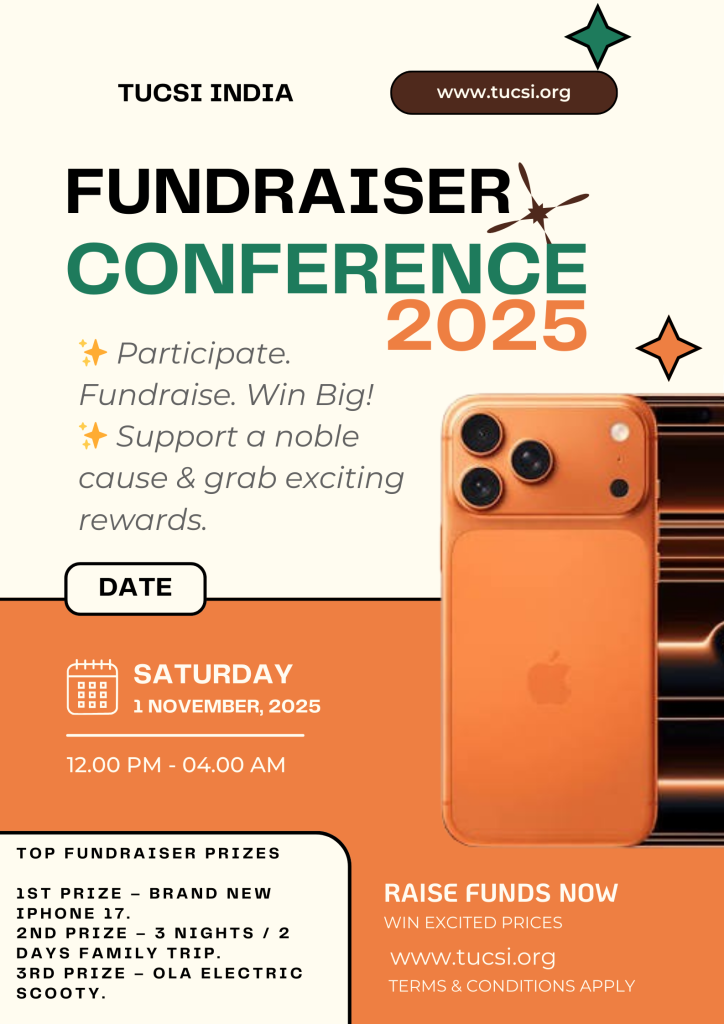
All Categories
Recent Posts
The Last Breath on Credit
Rapists Are Born in Silence: Another Daughter of Kolkata Screams for Justice.
The Bhartiya Ladhakhi:Echoes From The Roof Of The World
07316984833
contactus@tucsi.org

